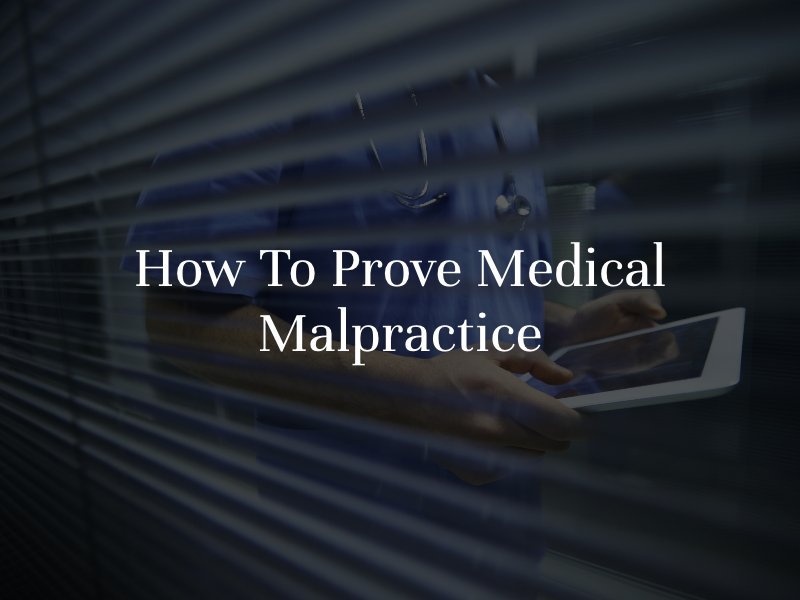To prove medical malpractice is responsible for an injury or illness, you must be able to demonstrate the following four elements of negligence.

Duty of Care
The defendant (at-fault party) owed the plaintiff (victim) a duty of care. Doctors owe patients a high duty of care to extend the same reasonable care that another physician in the same field would provide. As a result, establishing a doctor owed you a duty of care simply requires proving you had a doctor-patient relationship, which can be done with medical records.
Breach of Duty of Care
The defendant breached their duty of care by failing to act as another healthcare provider would in the same situation. Proving this element requires establishing the appropriate medical “standard of care” under the circumstances and how it was deviated from. In other words, evidence that a similar medical provider with the same training and background would have taken a different course of action. Proving a breach of care by a medical provider may require medical records, witness statements, and medical expert testimony about the standard of care expected and how it was deviated from.
Causation
The defendant’s breach of duty of care directly caused your injury or illness, and it would not have occurred otherwise if not for the medical provider’s incompetent decision(s) or treatment. For example, had your physician checked your medical history, they would not have prescribed a medication you are allergic to. Examples of evidence of causation could be medical records that state your allergies, a copy of the prescription, a receipt for the medication, and medical records detailing your reaction to the medication and follow-up care, etc.
Damages
The plaintiff suffered damages as a result of the defendant’s negligence. You must have suffered financial and/or personal losses for which you deserve compensation, or you do not have a medical malpractice case. Examples of damages include medical bills, lost income while recovering, pain and suffering, emotional distress, loss of enjoyment of life, wrongful death, etc. Evidence of damages can include, for instance, medical bills, pay stubs showing lost income, testimony on the extent of your injury or illness and the impact it has on your life, etc.
The Violation of Standard of Care
Grounds for a medical malpractice case in California will hinge on proving what the expected “standard of care” was in your case and that it was deviated from. By law, patients have the right to expect the same level of care collectively recognized by health professionals in the same field. However, being unhappy with the care administered, suffering complications that are inherent risks of treatment, or an honest mistake by a medical provider does not necessarily mean medical malpractice occurred. As a result, testimony from a medical expert will typically be critical to proving medical malpractice, as they will be able to testify to what the standard of care was in your specific case and how it was violated.
Proving medical malpractice can be complex and very challenging without a San Diego injury lawyer. They can help ensure you recover the compensation you deserve.


